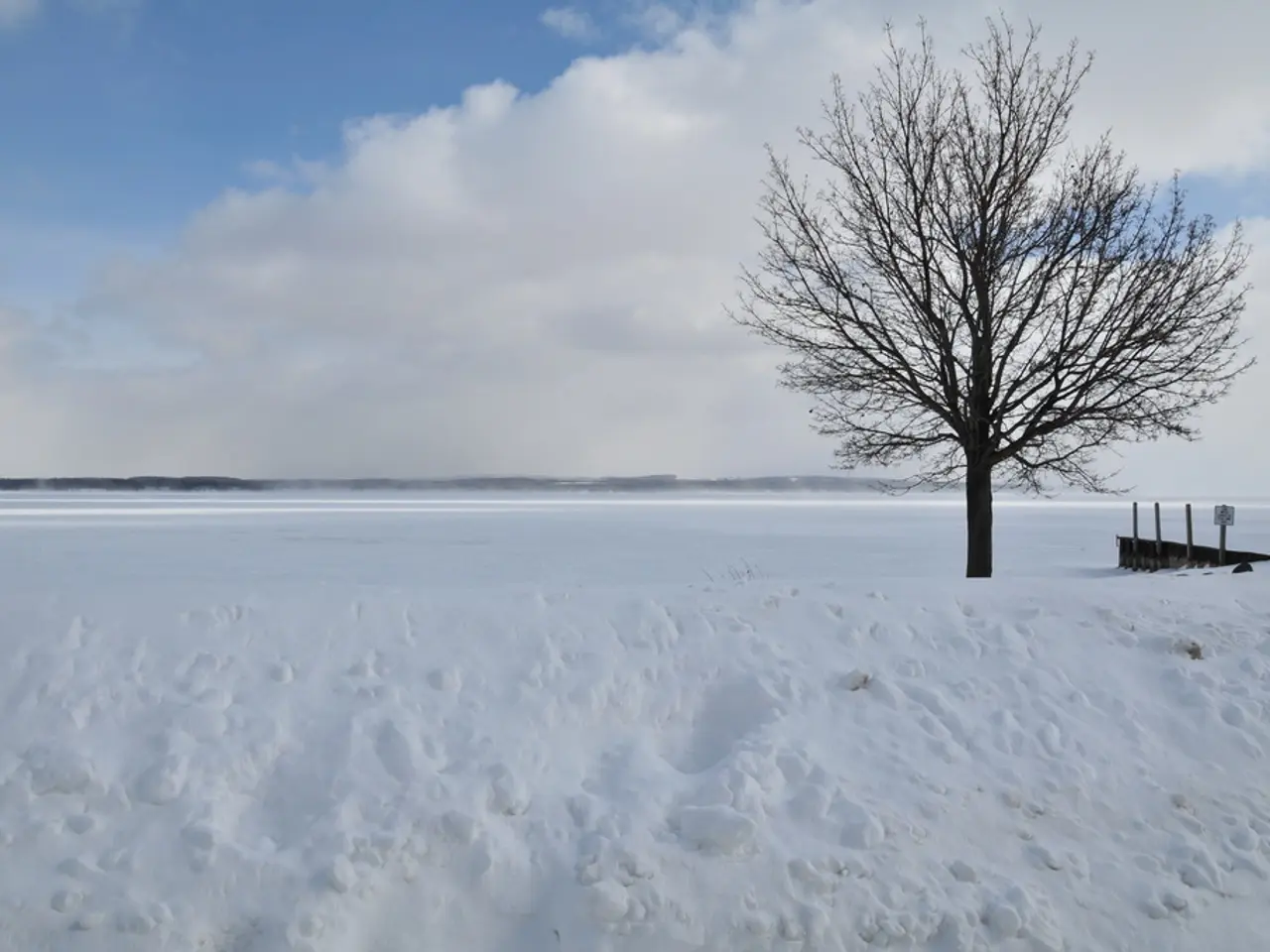Sizzling Summer Heatwave Ahead for Germany
anticipated heatwave with temperatures reaching up to 40 degrees predicted in the upcoming week
Brace yourselves, folks! Germany is about to sizzle as the mercury rises to scorching levels in the coming days. According to the German Weather Service (DWD), temperatures could skyrocket to an astonishing 39 degrees Celsius by Wednesday. Moreover, tropical nights, where temperatures don't dip below 20 degrees, are also on the horizon. Additionally, the DWD has issued a heat warning for vast parts of southern and western Germany.
Regions such as Baden-Württemberg, Bavaria, Hesse, North Rhine-Westphalia, Rhineland-Palatinate, and Saarland are under the heat's grip, with severe heat stress anticipated. Meteorologists urge residents to steer clear of the heat whenever possible, stay hydrated, and keep indoor spaces cool to avoid heat-related health issues.
Southern Germany's Sweltering Start
Monday will see the southern region heating up, with temperatures reaching as high as 35 degrees in southern regions, 30 degrees in northern regions, and a milder 25 degrees in the north. The Black Forest and Alps might witness some afternoon thunderstorms, resulting in local heavy rain, hail, and strong winds.
DWD meteorologist Tobias Reinartz said Tuesday is when the heat really kicks in. The hot air will spread significantly further north at the beginning of July, with almost the entire country expected to surpass the 30-degree mark. The west and southwest can anticipate temperatures reaching up to 37 degrees. The southern and southwestern mountain ranges may encounter another bout of heavy thunderstorms.
Tropical Nights, Wildfire Risks, and a Scorching Wednesday
According to Reinartz, Wednesday will be even hotter, with widespread temperatures exceeding 35 degrees, possibly touching 39 degrees, particularly in the northeast. Tropical nights will now extend to the eastern and northern regions, and the DWD expects extreme heat stress throughout the country.
Heat and drought can significantly increase wildfire risks. The DWD currently flags very high risk in southern Brandenburg and high risk in almost all of Baden-Württemberg, the northern half of Bavaria, as well as parts of Saxony and Saxony-Anhalt. The situation is expected to worsen by Wednesday.
Water Restrictions, Cities Brace for Drought
Due to the drought, many cities and regions in Germany are imposing limits on water extraction from rivers, lakes, or wells, often banning daytime watering. Conservation efforts are increasingly necessary as more and more cities and districts urge their residents to use water sparingly.
According to the Helmholtz Centre for Environmental Research's drought monitor, eastern Germany has grown noticeably drier over the last two weeks, despite occasional thunderstorms. The map shows that the dryer the soil layers, the darker the red on the map.
The Future of Our Climate - Dahmen's View
Particularly worrying is the increased frequency and severity of droughts due to global warming, as stated by the Intergovernmental Panel on Climate Change (IPCC). politician Janosch Dahmen (Greens) articulated this concern on the X platform, arguing for politics to prioritize and protect what truly matters – life, nature, and the future.
Meanwhile, France and Greece face their own heatwave challenges. In France, where high temperatures are already expected this weekend, Tuesday could see temperatures exceeding 35 degrees Celsius in many areas, including Paris, which may touch 40 degrees. Dozens of schools may temporarily close due to the heat. In Greece, strong winds have ended a three-day heatwave, with temperatures dropping from around 40 degrees to about 30 degrees within hours. Consequently, the civil protection agency has issued the highest level of fire risk for large parts of the country, and ferry connections have been halted due to rough seas.
Scientists in North Rhine-Westphalia are closely monitoring climate-change effects on the environment, as the ongoing heatwave in Germany poses increased risks for wildfires and necessitates water restrictions. Meanwhile, the severity and frequency of droughts are rising due to global warming, according to the Intergovernmental Panel on Climate Change (IPCC).







